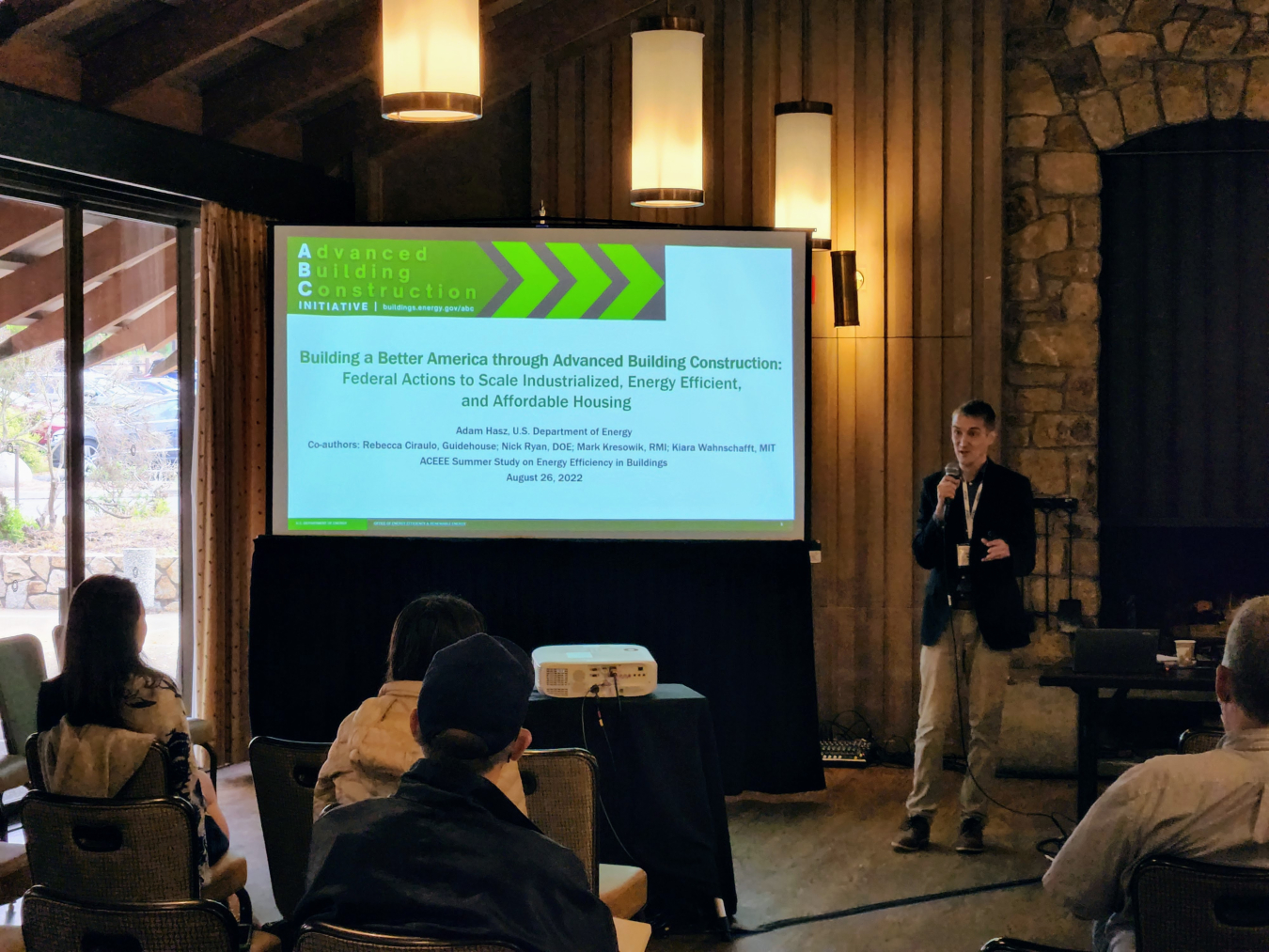As much of the country hunkers down for a cold winter, we recall a warmer time from this past August when buildings experts and thought leaders convened at the ACEEE’s biennial Summer Study on Energy Efficient Buildings.
January 5, 2023
As much of the country hunkers down for a cold winter, we recall a warmer time from this past August when buildings experts and thought leaders convened at the American Council for an Energy-Efficient Economy’s (ACEEE’s) biennial Summer Study on Energy Efficient Buildings, where an emerging approach to decarbonizing buildings—advanced building construction (ABC)—was featured across numerous conference tracks. The Building Technologies Office’s (BTO’s) ABC Initiative focuses on efficient, resilient, industrialized approaches to building construction and renovation that will help us achieve the speed and scale necessary to decarbonize our building stock by 2050.
Advanced building construction is redefining “the ABCs” of how buildings are built and renovated. ABC’s industrialized innovations cut across the value chain to streamline manufacturing, business models, and installation of technologies to enable replicability at scale. This will enable deeper energy and carbon savings in buildings at a far faster pace, which is necessary to meet U.S. climate goals. Today, residential and commercial buildings are the single-largest energy consuming sector of the U.S. economy, using 39% of the country’s energy, 74% of its electricity, and accounting for an even greater share of peak power demand. This demand generates 35% of America’s energy-related carbon dioxide emissions every year, which is even more significant when considering that buildings waste about one-third or more of the energy they consume—energy lost through drafty windows and walls, inefficient appliances, heating/cooling systems, and other building deficiencies. ABC’s industrialized approach can help change that by delivering low-carbon, affordable, and appealing buildings quickly.
ABC was featured in a number of peer-reviewed papers that were presented at Summer Study (linked below), with topics spanning the breadth of R&D, analysis, policy, and deployment. In addition, members of the DOE ABC Initiative team led an informal session with public and private sector stakeholders to brainstorm opportunities for compressing costs with ABC approaches. Discussion centered on the current challenges to scaling whole-building retrofits and possible solutions, including potential pathways for reducing soft costs—costs outside of direct construction costs—through approaches like automation (everything from customer acquisition to building energy modeling to project/work scope generation to permitting and compliance); bulk purchasing discounts; bundling measures into combined packages; and reducing the number of tests conducted to identify leaks or safety hazards (e.g., blower door/combustion safety tests).
To learn more about DOE’s work on advanced building construction, visit the ABC webpage.

